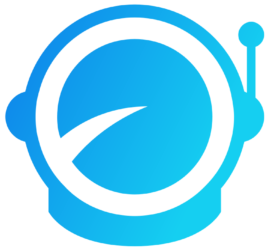 Hi there. This blog is one of the many ways in which I want to help you find your mind space. Life comes at us pretty fast, and at times it’s hard to make sense of everything happening around us. That’s why it’s so important to take a breather and check-in with ourselves. Sometimes we just need a moment to laugh, to grief, to think deeply about an intriguing topic, or to get excited about the little things that bring us joy. All of these moments help us to live healthy and well adjusted lives. And here in this space, I intend to share writing with you that will do just that. So take a deep breath, grab a cup of coffee or tea, and ENJOY!
Hi there. This blog is one of the many ways in which I want to help you find your mind space. Life comes at us pretty fast, and at times it’s hard to make sense of everything happening around us. That’s why it’s so important to take a breather and check-in with ourselves. Sometimes we just need a moment to laugh, to grief, to think deeply about an intriguing topic, or to get excited about the little things that bring us joy. All of these moments help us to live healthy and well adjusted lives. And here in this space, I intend to share writing with you that will do just that. So take a deep breath, grab a cup of coffee or tea, and ENJOY!
How I Learned That Nobody Cares About the Things We Are Insecure About
Self Sabotage Series – #2
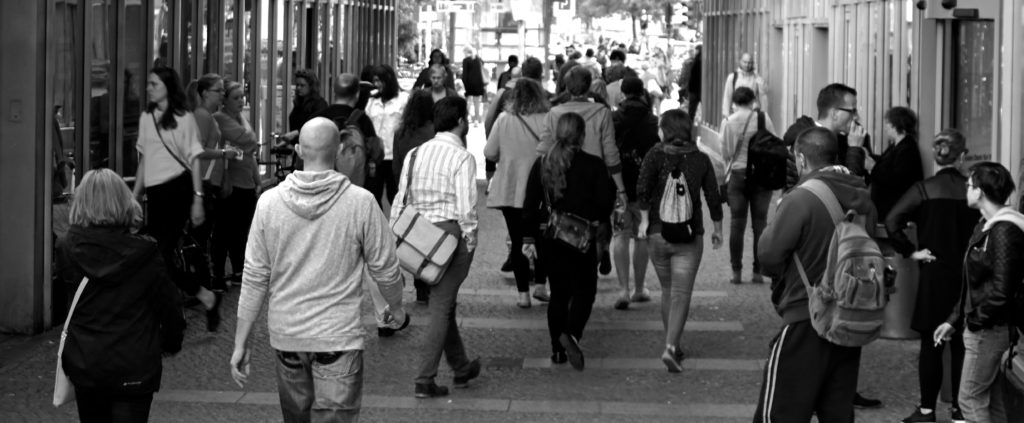
There’s a YouTuber that I follow named Prod. Riddiman. He makes lo-fi beats that are copyright free and free for profit use. His community is very collegial and collaborative about music and the process of creating art in general. Recently he hit 100K subscribers, which means he was awarded a YouTube Silver Play button. For this occasion, he did an unboxing video of the award as a way to celebrate the moment with all of us in the community. I watched and was excited for him, and headed to the comments to offer my congratulations.
The first comment was from Prod. Riddiman himself, and he wrote “Ugh, sorry I’m so awkward on camera.” This immediately struck me, like I was in shock reading it. Because his presence on camera would have been the absolute last thing on my mind. While watching the video I was proud of him. I was proud of the community that he organically built and was excited to be a part of this special moment.
I’ve been reflecting on his comment for a while now because I definitely saw myself in the way he responded. We often sabotage ourselves this way. We allow these negative thoughts and insecurities to live in our minds rent free, and they even get very comfortable squatting there. It makes me sad to think about because instead of celebrating with his fans, this YouTuber was obsessing over his camera presence. What types of celebrations and joyous moments am I missing out on because I’m replaying a small blunder over and over again in my head?
Moving forward I’ve decided to question every time I start to feel insecure and begin obsessing over small things. I will stop and ask myself, “Okay, but what if it wasn’t that weird? What if it wasn’t actually awkward? What if nobody even noticed? What if a few people noticed but they don’t even care?” By giving myself these other possibilities I can step outside of my own mind for a moment and gain some perspective. Most people are so busy in their own heads, obsessing over their own idiosyncrasies and missteps, that they don’t have the time or energy to dissect my every move.
There’s freedom in knowing people aren’t focused on you. You are the main character in only your own story, and merely an extra (or at most, recurring character) in everyone else’s. Sometimes we set impossible standards for ourselves based on made up perceptions we assume others have. It’s like we’re dwelling in an alternate reality where we think people care about all our little hang-ups. And the truth is they most certainly do not. So now I am actively choosing to be in a mental space where I have the freedom to be creative and innovative without fixating on other people’s hypothetical opinions of me.
Go enjoy each moment, and keep it moving despite the blunders because nobody cares anyway.
Stop Hiding
Self Sabotage Series – #1

I’m starting a new series I’m calling ‘The Self-Sabotage Series.’ These are short reflections, as I try to process the ways that I self-sabotage. I am earnestly attempting to recognize how I get in my own way and then unlearn these behaviors. I’ve decided to document my thoughts along the way.
Stop Hiding
You don’t need to earn your self-worth. Your self-worth isn’t tied to your accomplishments.
I am re-learning this right now.
Sometimes I feel like I need a project to be excellent, brilliant, amazing, exhaustive, and flawless because it represents me. And that pressure I put on myself forces me to hide. I hide instead of showing up and doing the work because I’m second guessing myself constantly. I’m so wrapped up in the BIG picture of the project and how I’ll be defined by its success or failure that I freeze. This is where my larger perspective isn’t super helpful. I need to recenter and remember that my worth isn’t found in these extrinsic projects.
My worth is inherent. A given. A foregone conclusion. And my success is inevitable.
When I’m grounded in these truths again, I find a small task I can work on from the project. Because I know zooming out too far makes me prone to feeling overwhelmed, I try to break the project down and work on the increments. Stay steady and trust the process.
“…scaling a hill is a lot less daunting than climbing a mountain, and sometimes all we need to get going is a little momentum.” -Caroline Zook
I know that I can only succeed if I start moving. No matter how small or incremental, I just need to show up and start.
Stop hiding and remember your worth. You can do this.
Back to Basics: Rebuilding Routines After Burnout
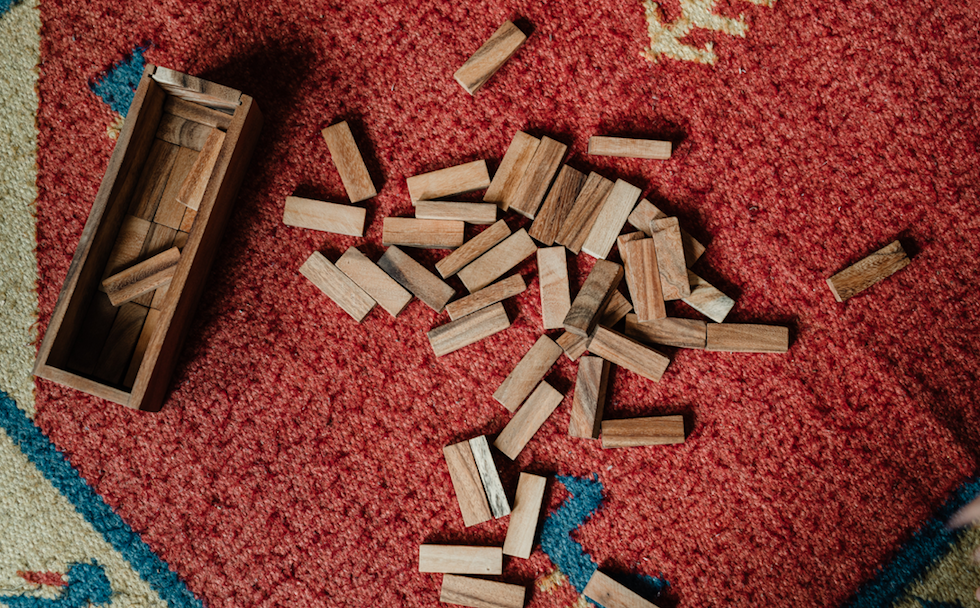
I am no stranger to burnout. It happens to me usually once a year. The worst part isn’t even the burnout itself; it’s the parts surrounding it. It is both the steady denial leading up to burnout and the guilt afterwards. In the “before” stage, I keep clinging to unrealistic standards for myself even though all the “meltdown imminent” warnings and red flashing lights are activated. I soldier on, pretending that this week, just this week, I can get through my mountain of work and obligations. If I just double down and grind harder, I can make it all work and stay on track. Heh, famous last words.
When my life inevitably heads off the rails, I’m left with the sobering reality that I have indeed run out of steam. For the next week or so, I step back from nearly everything and try to recharge. I put out the immediate fires but otherwise hone in on self-care and replenishing my energy. That’s the easy part. What’s next is the hardest.
How do I get back to “normal”? I mean, normal wasn’t exactly working for me, soooooo maybe I shouldn’t rush right back into that mess. And yet, at the same time, I still have work to be done. I can’t just be “recharging” forever. How do I create a sustainable workflow without jumping right back into unhealthy habits?
I start small, build momentum, and visualize my efforts. When looking at my to-do lists, productivity, and workflow, my plan is always to blow it all up and then rebuild. Every time it is so difficult for me because I’m such a perfectionist. Starting from scratch feels like I lost. Like I am a failure, and I can’t even figure out how to do my work. So on top of being anxious about burning out again, I have to wade through guilt and shame. Honestly, it’s a mess.
Fortunately, I have a wonderful therapist that helps me walk through these moments. She reminds me that I can be intentional about rebuilding my routines in a way that sets me up for success and minimizes guilt.
Small Goals & Quick Wins
The way I pull myself out of the burnout rut is by making goals that are too small to fail. I start my day with a few small objectives that I need to complete. By starting my day this way, I immediately notch a win and I can leverage that momentum for other tasks.
Right now I have 4 objectives on my daily morning list. That’s it. So even if I have a terribly off day and accomplish nothing else, I can still feel successful because I know I completed my morning routine.
Here’s a screenshot of my daily task app, Habitica.
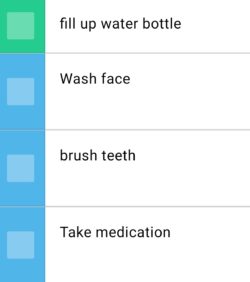
I don’t have to wake up each morning and wonder what I’m gonna do and how I’m gonna do it. I can just start.
Every Effort Counts
The second thing I do is simply record what I work on. Some people call it an accomplishment journal, but I prefer to think of it as an energy ledger that is separate from my to-do list. This independence is especially important as a knowledge worker because sometimes there can be a ton of effort without a task actually being completed. For my energy ledger, I use a web browser app called tweek, or sometimes I use a white board. As the day progresses I simply fill in what I’ve done for the day.
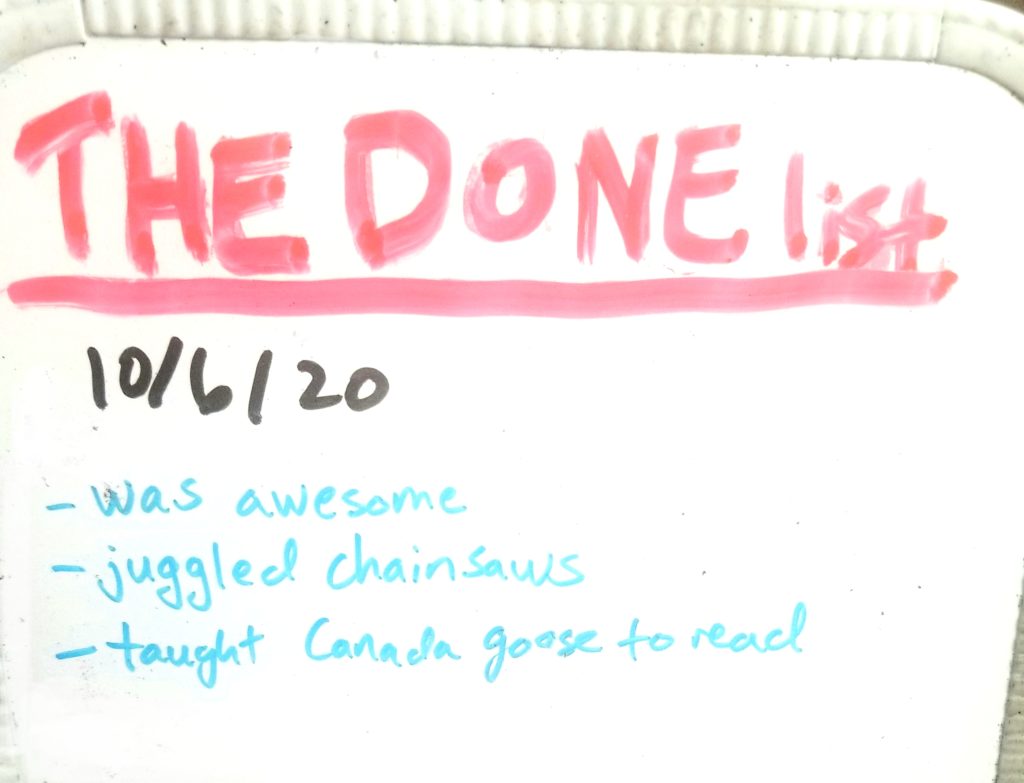
This is so important for me. Because regardless of how few big items got finished, I can clearly see what I worked on. I have tangible evidence of my hard work, and that’s what I need to rebuild.
This rebuilding process is about more than being okay energy-wise. Post-burnout, I really need the mental assurance that I can actually do this. That I have what it takes. That despite a setback I can reset and tap into my full potential.
When rebuilding from burnout we all need that confidence and stability that comes from knowing you are more than capable of getting the job done.
Because the truth is you are capable and you can do this, even if right now it doesn’t feel like it. In the meantime, set small goals, get those quick wins, and track your progress until you get there. You’ve got this, now keep going.
How to keep showing up (even when you don’t feel like it)
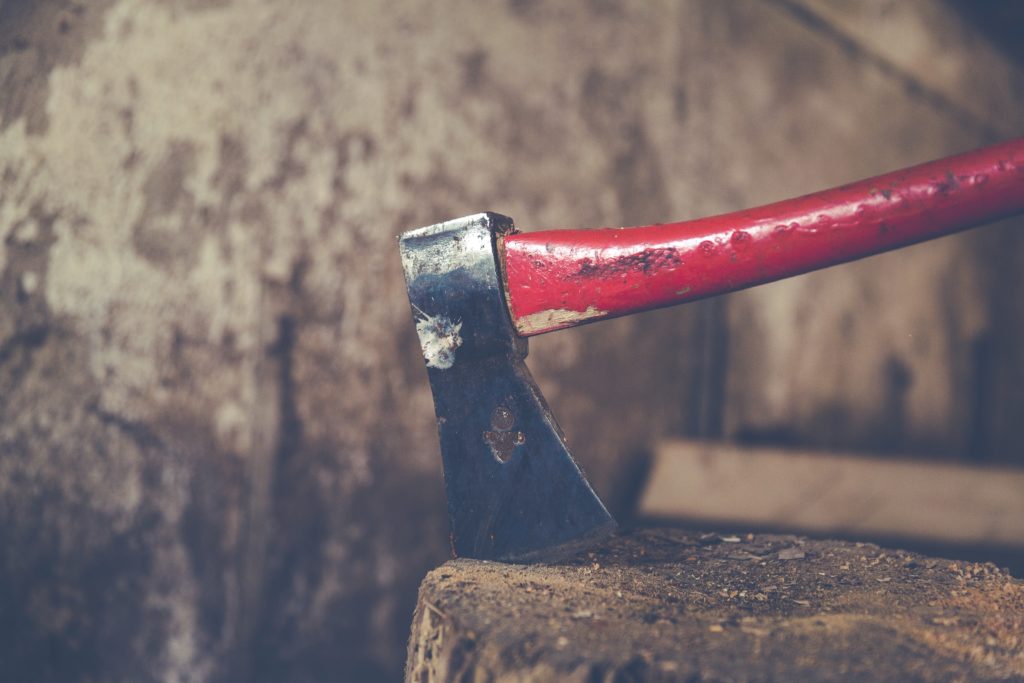
I read an email today that helped me gain some much-needed confidence. I’m subscribed to an email newsletter called “We Own Mondays,” written by Danial Hooper. The messages are short and sweet and to the point. And this week’s message really struck a chord. And it was only 57 words.
“Chip away
If you’re building, then you’re still working. Sometimes, when you’re cutting through a wall, each swing of the axe isn’t as strong as others.
That’s not what matters.
It’s important to swing the axe. To chip away. When you grow tired, to rest. When you’ve rested, to swing again.
Are you willing to swing today?”
I really struggle with getting started. Sometimes it feels like I have so much work ahead of me that I get paralyzed. Just thinking about all the work I have to do makes me feel overwhelmed. And that’s often because I have the final version in my mind. When thinking about my work, I know exactly what it should look like and feel like in its most perfect form. And yet, I see where I am, and it feels too far away so I get discouraged. So instead I’m changing my perspective for this week. I will erase from my mind the image of the final product and focus solely on taking a few good swings.
A “good” swing isn’t one that lands perfectly. When wielding an axe I know firsthand that sometimes you can miss the mark entirely. I can use this knowledge to help me let go and just swing. A good swing isn’t about the impact; it’s about the effort. It’s about showing up, creating tension in my midline, and producing a powerful swing. That much I can control. And I can swing again and again and again.
That’s my goal for this week. Each time I sit down for a work session, my mind will be on taking a swing. How can I take a good swing in the next 25 minutes? And the next 25 min after that? And again after that? It’s focusing on one single moment at a time and giving it my best effort.
I’ve been in a funk these last few days, and it’s been hard to find the motivation to begin. Now I have a tangible goal to aim for and it actually feels within reach.
I can’t always control how I’m feeling, but I can always show up and take a swing.
Keep chipping away.
You Can’t Be Everything To Everyone

I originally wrote this piece during the summer of 2018. I felt totally drained and needed to reflect on everything going on in my life. Summer is always when I try to tackle my biggest projects of the year. This summer is no exception as I complete my PhD thesis (Ahhhh!).
I’m revisiting these thoughts and finding them extremely helpful even 2 years later.
I’m right in the middle of my field season, and I’m beginning to feel a bit overwhelmed. My schedule is very busy and punctuated by the times, twice a day, that I need to go outside to do my research. I try to fit life in the margins, between my two research checks, but it’s proving to be difficult. I also have tried the method of back loading everything until after the second check of the day. “I’ll work on that draft when I’m done with fieldwork for the day,” is what I often tell myself. Yet when the time comes I’m so exhausted that I delay again and pledge the work will get done tomorrow. But tomorrow is just as busy as today, and yesterday, and the day before that.
So what do I do? Well, I do my best. A few years ago that would not have been the case. I would have stressed out until I made myself anxious, depressed, and physically sick. But I’m not that person anymore. I was celebrating this growth with my therapist a few weeks ago. I told her how I feel overwhelmed and yet I’m still calm and generally positive. It’s because I’ve come to realize that I can’t do it all. I am unable to be great at my research, and CrossFit, and supporting family & friends, and improv and rap and comedy and piano and guitar and helping with church and leading Bible study and starting a blog and cleaning my house, etc. etc. etc. You get it: my life is busy. But so is everyone else’s. If prompted, anyone could make a list similar to what I did that encompasses all the commitments vying for their time. And there is one succinct conclusion tying all of our lists together…they’re too much.
There is too much list and not enough US to go around.
Period.
No productivity hack, amounts of caffeine, or surge of willpower will help us conquer everything that requires our time, energy, or attention.
So what should we do? We do our best.
Every day I do what I can. And at the end of the day I celebrate everything I did, rather than ruminate on the things I didn’t. That’s living life in the balance for me. I can still feel the pressure to get everything done, but I now know how to better manage it. And instead of promising everything to everyone, I let folks know up front that things are hectic. I say, “That sounds like a cool thing, but my life is currently frantic from field work, so I will do what I can.” That way there is no guilt or shame, but all you committed to is what you can do.
So what can you do? Where do you set the threshold of what you’re able to accomplish
Well, it depends.
Some days you accomplish more than others; the key is to be flexible and adaptive. For example, I’ve learned to listen to my body (i.e. if I’m tired, achy, sleepy, hungry, etc.) and accommodate what it needs, rather than powering through tasks. Maybe I wanted to do 4 things before bed, but I feel very fatigued and my ability to concentrate is waning on task 3. It’s all good. I celebrate completing my 2 tasks, and I reset for tomorrow. Or sometimes I’ll take an hour nap and see how I feel later.
The key is knowing and truly believing that you didn’t let anyone down. You did not let the folks who are waiting on the task to be completed down, and more importantly you didn’t let yourself down. Because nothing is more important than taking care of yourself. Thus, all the people and organizations that rely on you are worse off if you’re not 100%. Now, I’m not saying stretch this out and be straight up unreliable. You still gotta get the job done, you still have to deliver. But what no one tells you is that life still goes on, even when things are done at 3-5 day standard shipping. Not everything warrants overnight express or priority mail. You can still be a reliable, efficient, and productive member of society without running yourself into the ground.
I found that having organizational systems in place can ease some of the burden. Two things that have helped are batching and routines. My mornings can be a bit unruly. But when I start my day with purpose and get some momentum going, I’m much more productive. All of a sudden what I’m capable of accomplishing begins to expand. It’s just a few simple tasks. Get up, brush your teeth, wash your face, and make your bed. That’s it. But those simple acts make it hard to get back in bed and waste the morning browsing social media on my phone. Instead, I get started right away on my to-do list for the day, and completing those early items gives me the boost to tackle the other items.
Also, batching tasks has helped tremendously. Particularly, I’m referring to meal prep. I don’t mind cooking, but I rarely have the time and energy to do it well. So now I’ll cook dinner for 2-3 days at a time. I will portion the food in Tupperware containers, and now I don’t have to think about making meals for a few days. Dinner becomes a less daunting task, and I can continue being productive afterwards, rather than being sidelined by all the cleaning of pots and pans.
There are probably a bunch of other things that can boost what you’re able to do. They will likely be more centered around your strengths and weaknesses.
Still it’s so important to know your limits.
You won’t be able to do it all.
You can’t be everything to everyone; some folks will have to wait.
And you know what? They’ll be just fine.
Little Joys, Little Steps, Big Impact

A Day Well Spent
Yesterday felt good.
It started slow, and admittedly it was tough to get out of bed. Then I thought of all the things I could do around the house. At first that stressed me out because I have a ton of unfinished projects in various forms. Then I decided to get organized. Export, export, export! It seems like there’s a bunch to do, and it can be overwhelming when all of the tasks are swirling in my head.
So I grabbed a whiteboard and wrote a quick list titled, “Things that will help me feel better & boost my mood.” That’s it. They were simple things like make my bed, empty the trash from my room, wash my face, go for a walk, fold & put away the clean laundry I did yesterday.
When I was in the bathroom washing up I played a new curated playlist on Spotify (I love those algorithms, they seem to always know what I need) called Feel Good Instrumentals. It’s exactly what it sounds like, and it was lovely. And I FELT GOOD. Despite the fact that it was 1pm and I was just getting ready, I was happy. And I was proud of myself for even doing that. I had spent the entirety of the day before in bed. So I could see progress. I was becoming “myself” again, or at least back to baseline.
For posterity I’ll mention that this is like 5 or 6 days into the nationwide protests following George Floyd’s murder. And at first I couldn’t place my fatigue, and then I realized it was in response to trauma. I felt emotionally overwhelmed, hypervigilant, and that was taking a toll on my energy and motivation. No wonder I spent most of Sunday retreating into a favorite fictional novel that I’ve previously read. I was shielding myself and doing something I enjoyed that required low effort on my part and also offered an escape.
I was able to shake off the bit of guilt for Sunday. In fact, I put it out of mind altogether. I remember looking in the mirror as I washed my face thinking, “Yesterday doesn’t matter. Let’s just focus on today, or right now.”
And I should say I didn’t end up finishing most of the things on the list. I wrote down ten things, and I completed four. And those four things gave me momentum. It helped me to push forward and begin planning other projects and ideas. It got me moving around my home and attending to other things. It was a start.
I remember thinking the following as I ended my day…
Now I feel good. I’m chilling in bed with a chocolate chip cookie, and I’m watching What’s New Scooby Doo on Netflix. I’m proud of my accomplishments today because it feels like the beginning of something great. Like I’m just starting to get back to my regular self. I love her. I love who she is when she is her whole authentic self.
So when I get a glimpse or a hint that she’s returning to her “final form,” it brings me joy. I wait with anticipation for tomorrow because I know I am once again drawing closer to the best version of her, the best version of me. And four simple tasks helped me get here, helped me start the process.
Today was a start.
Today was a day well spent.
Overcoming my obsession with improvement
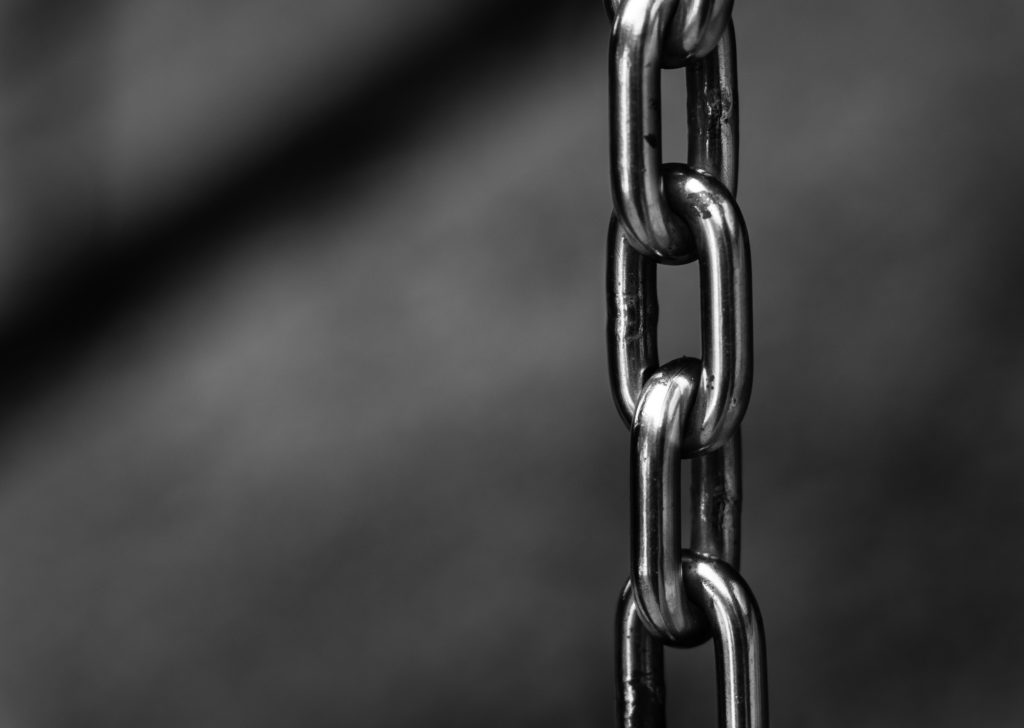
I originally wrote this piece a week ago. Tomorrow is the big day and I couldn’t be more excited! The reflection I wrote below has everything to do with how great I’m feeling now.
Mental Prep for Murph
This past week I remembered that Murph is coming up soon, and I felt literal dread.
Murph is a hero workout (WOD) in Crossfit that is done every Memorial Day to honor a Navy Seal, the late Michael Murphy. To learn more about the workout and why we do it, check out this article. In short, Murph is once a year, and it’s a really big deal.
The workout entails:
1 mile run
100 pull-ups
200 push-ups
300 squats
1 mile run
All For Time
I felt a knot in my stomach. I felt horrible because I remember how badly I felt mentally and emotionally after last year’s Murph.
I did worse in 2019 (by like a minute or 2) than I did in 2018. I was so upset because through Crossfit I’m supposed to see continued improvement in my fitness, not go backwards. Even during the brunch and celebration my gym had afterwards, I was a little withdrawn.
I think it’s my perfectionism–no, I KNOW it’s my perfectionism. I put so much pressure on myself to continually be moving forward that when I have a bad performance my reflex is to criticize and berate myself for all my previous decisions. I literally was thinking of all the missed workouts and poor food choices and saying to myself, “Way to effing go! I can’t believe you’ve done this?!”
But that doesn’t help at all. After a day or two of my pity party, I tried to channel that energy into future training (similar to Mat Fraser’s strategy after the 2015 games). I said, you know what, what’s done is done. I’m gonna focus on 2020 Murph. I have a whole year to get my fitness life together and crush Murph like never before.
*In SpongeBob narrator voice* One year later
Welp, that didn’t happen. In fact, I’m arguably in way worse shape than last year. And that’s not accounting for Covid-19. It was as early as November-ish 2019 when I just sort of fell off the wagon. I don’t recall anything dramatic happening that led to this. Instead I just slowly stopped showing up, slowly started eating takeout way more, and by the end of the year I was not looking like much of an athlete.
So now what? Well, in the time of Covid I’m learning a lot about my mental fitness. I’ve trained so much of my mindset through 2 years of CFI (CrossFit of Ithaca). I am mentally tougher than I’ve ever been. And a lot of that recent growth was due to mentally trying to return to Crossfit in early 2020 after falling off the wagon. It was tough to see brand new people crushing their fitness goals. Meanwhile, here’s me, the supposed 2-year veteran who is noticeably heavier and less mobile.
But I had to celebrate how far I’ve come. I think of it like a graph of the stock market or any measurement over time. We can go up and down, high and low, but the x-axis of the graph keeps extending to the right. Time keeps going. That prolonged impact of being a Crossfit athlete isn’t negligible. And it’s not like that experience gets totally canceled out by a low point on the y-axis of the graph. I’m still making forward progress.
It’s easy to be psyched about being an athlete when you feel you’re at your peak. It’s really really tough when you’re trying to approach a workout while also having contempt for your out-of-shape body. That’s when I had to stop and recalibrate. I REFUSED to disrespect my body that way.
Crossfit and my performance during a workout should always feel POWERFUL, not punitive. I needed to re-shift my perspective and show gratitude for all that my body can do. One way I do this is by doing lunges.
When I started Crossfit I couldn’t even touch the floor with my knee doing a lunge. I had to hold on to a post, and I could still only lower my knee a little. My knee was probably still a good 8 inches from the floor. Now I can lunge, I can do walking lunges and Samson lunges, I can do a lunge with a 35lb dumbbell on my shoulder, and I can lunge with a 35lb dumbbell extended overhead. That’s wild to me! That kind of improvement in strength, mobility, and range of motion cannot be captured on a scale. And for that I’m grateful.
I love that recently my gym adopted the motto “Health. Happiness. Gratitude.”
It could not sum up my new goals more perfectly. These 3 words became my beacon, my north star. I remember that I’m still making progress forward for my health. I feel happy when I can complete a WOD and be more intentional about my nutrition because I know I am prioritizing my health. And I am grateful for my body, my coaches, and my CFI community that make it all happen.
So next Monday, a week from today as I write this, I will complete Murph for the third time. I’m not even looking up my times from the last years because I don’t care.
Yes, self-improvement is usually important, but at what cost? I’ve come to realize something important about my unhealthy obsession.
The pursuit of ruthless and unrelenting self-improvement is merely a mask for perfectionism.
I’m done wearing that mask.
I’m going to do my best, and I’m going to celebrate another year of fitness. I’m going to feel like a rockstar when I’m completing the workout.
I will be so happy and so full of gratitude!
I may not be as strong or as fast as I was last year, but I know I am mentally much tougher.
No matter how long you stray off course, what’s between your ears doesn’t atrophy.
Bring it on.
Facing failure: Pressing forward despite disappointment

[This was written in April after I got some disappointing news.]
Last week, I found out that I didn’t get the NSF postdoc fellowship. Even though I figured I didn’t (since winners were being announced 2-3 weeks before) it still hurt. I guess a small part of me was holding out hope. Oh well.
I know that ultimately I’ll be okay. I have a job next year. And even if it only ends up being a 1 year appointment, I feel like I can contribute a lot of good. I finally mustered enough courage to look at the reviewer comments and they were…okay. It didn’t feel great, but it felt like we gave it a decent shot. With a little more polishing, I think we could have a real shot next year.
My mom called me right as I was reading the comments and sending them to my postdoc advisor. I told her how I got dinged for not being a human researcher.
I read her this exact reviewer comment:
“The candidate has previously done research in voles, but not humans. Thus, the project represents a completely new direction for her research. Thus, she does not yet have the research background that will be necessary to successfully complete the project.”
“WHAT?!?!” she yelled through the phone. “I can’t believe they said that about you; how could they say that?”
I was totally caught off guard by how angry, upset, and genuinely hurt she was. I told her this comment was very mild. It was constructive and to the point without being too personal. She insisted it was personal. I finally said, “Mom, reviewers have said way worse and way meaner stuff about me and my work during peer review. This is honestly kiddie stuff.”
As I was trying to reassure her, I could tell she was perplexed by how cavalier I was about receiving these reviewer comments. I was thinking to myself, “Doesn’t she know this is a huge part of my job? This literally happens all the time.”
Then I realized, no she doesn’t…
BECAUSE WE NEVER TALK ABOUT OUR FAILURES!
I distinctly remember posting to social media when I submitted my first manuscript, and then nearly a year later posted again that said manuscript was accepted for publication. What I conveniently left out is the part where the first prestigious journal we sent it to tore it to shreds in the review process and rejected the paper. After reading the reviewer comments, I didn’t even open the manuscript to revise it for 2 months. It was that painful. Then I was able to take the reviewer feedback, substantially revise and rewrite the manuscript, and send it to a slightly less prestigious journal. On this second try, all was well and it got accepted after minor revisions.
But we skip the ugly parts, the vulnerable parts. The parts that make us question if we really have what it takes. The parts that make us feel like were just faking-it-until-we-make-it and now we’re exposed and are gonna to get found out. The part where a little voice says, what are you even doing here? Why did they even let you in here?
Those feelings are real and we hide them. But you know what? When we bury our failures it only creates more shame. So I say let’s start talking openly about our disappointments and stop suffering in silence.
To that end, I’m publishing portions of the reviews from my failed NSF project proposal here. I’ve removed jargon and pertinent details about methods for clarity and brevity (and cause people be stealin’). I want you all to see that our shortcomings in performance don’t define us, and we have to keep on trying.
I’m so thankful for my postdoc advisor. She is very level-headed and wise and is honestly such a strong leader with such a fierce confidence in my abilities that it’s nearly impossible to doubt myself.
After receiving the comments, she emailed back: “Honestly, these are good and informative. The major issue is streamlining the project, which I think I we have better ideas about. Let’s meet and regroup.”
I’ll also note here that I told her via text that I was anxious about reading the reviews and hadn’t looked at them since getting the rejection. She said, ”Don’t even worry about it, you don’t have to look at them. If you want just forward them to me.”
Gah, what a gem!
Thanks Marlen, you da real MVP.
Without further ado…

Scoring Scale for Proposals: Excellent, Very Good, Good, Fair, Poor
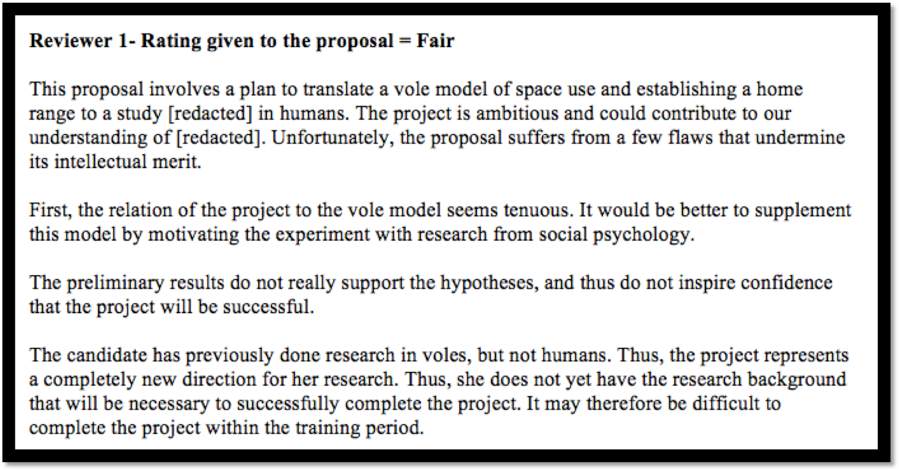
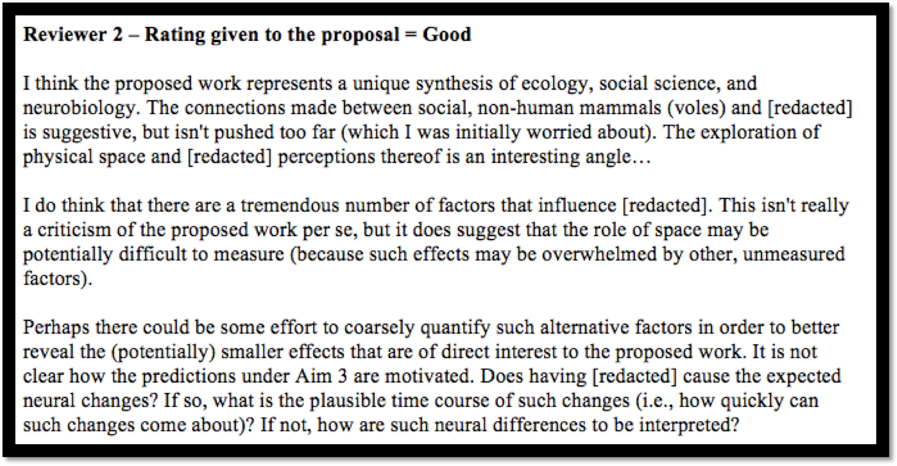
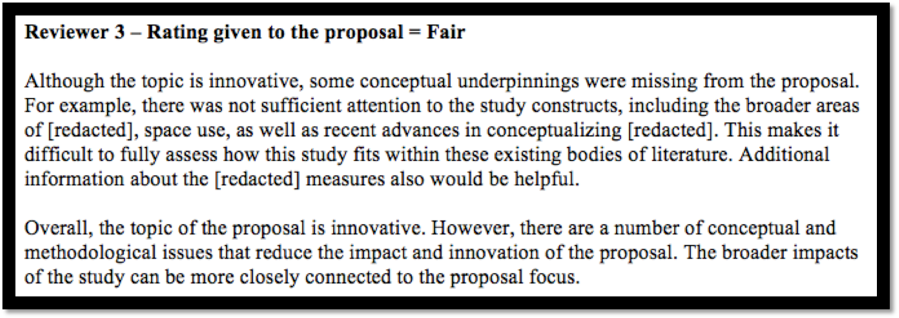
And that’s all she wrote!
Oh well. Time to go back to the drawing board and make a stronger proposal. This is just how science works. You create something, you get constructive and critical feedback, and then you iterate.
Failure is a necessary part of that process. So here’s to sharing our failures and continuing to press forward!
Let’s get to work!
Finding the Groove

It’s been about a month now of working from home. I think the official count is about 5-6 weeks. It has taken me this long to settle into something familiar and to feel like I actually have a handle on the days as they go by. In fact I feel like I’m actually living each day rather than letting the days simply go past me.
One of the most important things I did was do a full reset. I cleared everything. I wiped away any type of schedule or preexisting flow of work I had before the quarantine. I had a few Zoom meetings each week that I couldn’t avoid, but other than those 2-3 commitments per week, I spent the time how I wanted. I explained my situation to my supervisor (PI) and my professor, who I am TA-ing for this semester. I explained that I was NOT okay, and that my mental health was hanging in the balance. Both were very understanding and did their best to help me and give me the space and time I needed.
I started from scratch and slowly built daily routines. One of the first things I decided to do was leave my bedroom. That was a BIG step. With the world at my fingertips, it was easy to scroll through my phone all day. I just said to myself, “You know what? You have to get up and go in to the living room / dining room area once you’re fully awake.” There were no stipulations beyond that: just get up and literally sit upright lol.
Once in the living room area, I began opening the curtains and blinds to add more natural light. I then decided to make a cup of tea. Next, I chose to light the candle that’s on my dining room table. Afterwards, I started listening to a few podcasts. Then I wanted to do something with my hands while I listened to podcasts or video lectures on YouTube. I decided to color while I listened.
I went and dug out a coloring book calendar that my very talented friend Cassie made a couple years ago. The calendar is called Color Tompkins County, and you could color popular landmarks and seasonal events that happen in our town each month. It was awesome and surprisingly soothing to color and to also see and be reminded of the beauty of where I live. I desperately needed that reminder while stuck at home all day. Eventually I went from coloring to sketching and drawing. I walked to the pharmacy a few blocks from my house and bought a sketchpad for $2. (Okay, it’s actually a legal pad / writing tablet, but it has white pages and doesn’t have any lines, so I’m calling it a sketchbook. Lemme live my life!)
Eventually I started taking daily walks and listening to new albums from music artists I’ve been meaning to check out but never had the time. I also started reading more and listening to a ton of audiobooks and podcasts. And then I started journaling. I began writing just 10 minutes a day. That’s actually what I’m doing right now. (Though admittedly I’m on my second 10 minutes; sometimes you can’t stop, okay?) Slowly but surely my spark started to come back.
By creating something daily – journaling, coloring, sketching, etc.- I was able to slowly lure out such a fundamental part of myself. I am the most happy and thriving version of myself when I’m creating something. Whether I’m researching a problem, envisioning a solution, or trying to come up with effective strategies to advocate for others, it’s always about drawing out and expanding upon these ideas that I have way down deep. But for the better part of these last five weeks, I hadn’t had the energy to coax this creativity out.
Sometimes when we discuss being in a “rut” and how to get out of it, we talk over and over and over again about discipline, willpower, and how “You’ve gotta be willing to get uncomfortable!”. That’s all well and good for some people, but the older I get the more I realize how that doesn’t work for me. I need space. I need quiet. I need a blank slate to slowly rebuild routine and familiar habits. I need space in order to find the groove.
In February, I was reading this book called Present Over Perfect, by Shauna Niequist. I learned a lot about the power of slowing down for your sanity and for the sustainability of your daily life. In one chapter she talks about the groove. She uses a metaphor of her partner playing the bass. He creates these silky smooth and very groovy baselines all the time. And the mark of a good baseline isn’t a ton of notes. It’s actually the spaces between the notes. The smoothness of the groove is created in the margins. The groove is found in the margins, in the composition of the rhythm, and also in the margins we keep in our lives.
I’m learning to protect the margins in my life and resist the urge to fill every single space in order to be “more productive.” It has made a world of difference, and I want the same for you. Create the space where you can flourish, and your spark can come alive again. Find your mental clarity in the stillness, in the time dedicated just for you, where you can get just what you need.
Slow down, reset, and take care of yourself.
Find your mind space.
Give yourself a chance to find the groove.
Win the morning, Win the day

I’ve been thinking about this phrase a lot. My CrossFit coach Jared spoke in a video recently about how he’s used this phrase to motivate him to go to the gym early every morning (the empty gym he owns) and work out. He was quoting Ben Bergeron, a famous elite CrossFit coach and trainer, who coined the saying. By winning the morning, it sets the tone for the whole day. Jared was inspired to switch things up during this whole quarantine ordeal and start taking control of his mornings. And now I’m inspired by Jared’s example.
What’s interesting is how often I re-learn certain lessons in life. This idea of a strong morning definitely isn’t new to me. I’ve noticed in my own life that what I do between when I wake up and 10am is a good predictor of how efficient and productive I’ll be. But I’m tired of all the constant “extra tough disciplined mindset”, “rise & grind” and “hustle porn” messaging. It’s exhausting and often just makes me feel guilty. Yes, in the past when I was in a really good routine things generally went well. I got up every morning and went to CrossFit at either 630 or 730am. But things haven’t been like that for me in over a year. I don’t know exactly what happened, but I’m not so dead set on trying to attain that previous peak.
Things have changed, and so have I.
In the past I’ve watched plenty of YouTube videos about morning routines from productivity and lifestyle bloggers alike. And I’ve nearly been enticed to buy The Millionaire Morning or other “How these Super Successful and Rich People start their day: unlock their secrets” guidebooks. But this pandemic has taught me that that’s not what I need right now. Not during this season. Besides, in my opinion that’s not really what win the day means.
To me, winning the morning and subsequently winning the day is about intention. It’s about waking up with purpose and a few specific goals or objectives in mind. For example, if I get up and decide I want to accomplish 1 thing early, it gives me more direction. I tend to scroll endlessly on my phone through social media when I feel I don’t have anywhere to be. While working from home everything that happens in the day can technically be scheduled for “later” without a specific time frame. What I’m noticing is that the day will be over and later quickly becomes tomorrow or the day after that.
So my new goal is to have a daily morning purpose. To be intentional in those early moments and pick one thing to accomplish. I’ve learned (the hard way) that thinking about completing too many tasks in the morning can be intimidating and often leads to procrastination. Instead I’ll just focus on one goal. And I trust that the sense of accomplishment I gain from following through and finishing something will provide the momentum I need to carry me into my other tasks.
It’s simple and that is what I crave. Right now I want a life that is simple, fulfilling, and also has plenty of freedom. The freedom to take my day one moment, one objective at a time. A life with built in purpose and wiggle room, and always the opportunity to turn to wonder.

